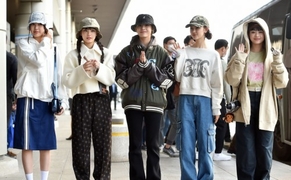 |
| President Lee Jae-myung’s directive to dispatch Superintendent Baek Hae-ryong to the Seoul Eastern District Prosecutors’ Office has sparked controversy over fairness in the ongoing Incheon Customs drug interference investigation. / Source: Yonhap News |
Police Superintendent Baek Hae-ryong is set to join the investigation team handling the alleged interference case involving Incheon Customs’ narcotics unit — a move that has stirred debate over fairness, as Baek himself is a victim in the case and his dispatch reportedly follows President Lee Jae-myung’s directive.
The Seoul Eastern District Prosecutors’ Office indicated on October 14 that if Baek is assigned, it will create a separate investigation team independent from the existing joint task force. “Should Superintendent Baek be dispatched, we will respect his position and form a distinct team to handle cases unrelated to his victim status, such as the Incheon District Prosecutors’ Office’s alleged cover-up of a drug-smuggling investigation,” the office said in a statement.
Acting National Police Commissioner Yoo Jae-sung had earlier stated that Baek’s dispatch “would be reviewed upon request,” suggesting the transfer could be finalized soon.
Still, legal experts and political observers warn that the decision could raise unavoidable questions of propriety. While prosecutors said Baek will not investigate matters in which he is directly involved, his assignment to the same agency probing the case remains “highly unusual,” given the potential for overlap in related issues — sparking fears of a “self-investigation” controversy.
Adding to the sensitivity, President Lee’s October 12 order to dispatch Baek has drawn accusations of setting a “de facto investigative guideline,” which critics say could undermine the probe’s neutrality. Depending on the outcome, the move could invite charges of political bias and further erode public trust, legal analysts warned.
Most Read
-
1
-
2
-
3
-
4
-
5
-
6
-
7





















